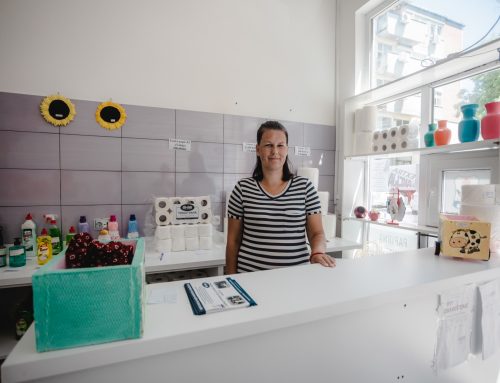The European Union has granted more than EUR2,3 million to social welfare and health care institutions, civil society organisations, and local governments in Serbia, that took part in the call for proposals on “Support to deinstitutionalisation and social inclusion of persons with intellectual disabilities and mental health problems.”
“The fact is that the area of mental health is not among publicly debated topics very often. This particular area is of critical importance for individual, human, as as well as the welfare of the whole society,” said Head of the EU Delegation to Serbia Michael Davenport at the meeting that took place at Palace of Serbia, on the occasion of awarding the grants aimed at supporting projects for persons with mental and intellectual disabilities.
Grants are awarded to 19 projects due to be implemented from June 2014-December 2015.
Davenport said that the estimated figures revealed some 300,000 people with intellectual disabilities or suffering from mental disorders in Serbia, but warned that the situation might get worse in the future.
- Photo: FoNet
“With only five special hospitals, deployed with no apparent plan, 13 residential facilities, and an under-developed network of local services, it is obvious that the statistics are going to get only worse, whereas the limits of possibilities for users and their families will get narrower,” said Davenport.
Aim of this project is to improve the status of residential facilities’ (social welfare institutions) users who suffer from intellectual and mental disabilities, and create conditions for their social inclusion, as well as for inclusion in their local communities.
Grants vary from EUR20,000-50,000 per project, with the co-financing of 15%.
Thanks to these projects 19 new services will be opened within the social welfare and health care systems in Serbia; 149 persons will undergo the process of deinstitutionalisation and start an independent life within community; 192 persons will be prepared for deinstitutionalisation, whereas 533 persons will be included in local services aimed at preventing institutionalisation.
Minister of Health Zlatibor Lončar said the EU financial support would enable special hospitals Slavoljub Bakalović in Vršac, and Sveti Vračevi in Novi Kneževac to take a part of their activities to a local level.
Lončar said primary health care should be strengthened, above all, by training doctors to recognise the signs of mental disorders more easily.
The project is funded by the EU from IPA funds, and implemented through a cooperation with the Ministry of Labour, Employment, Veteran and Social Policy, and the Ministry of Health of the Republic of Serbia.
Since 2000, the EU has granted EUR144 million as a support to social sector, and invested EUR147 million in Serbian health care.
For more information:
“Open Hug” project: www.otvorenizagrljaj.rs
The list of supported projects can be found here.




